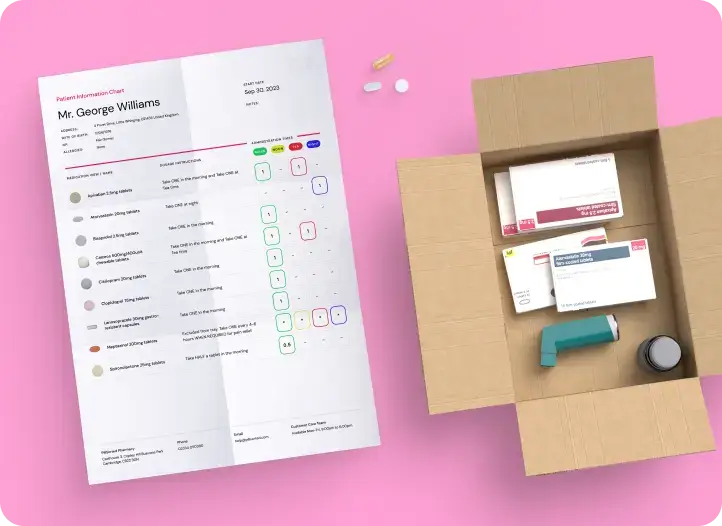How to Test for Asthma

Asthma is a common respiratory condition that affects over 300 million people worldwide. However, diagnosing asthma isn’t always straightforward. Up to 30% of people might be diagnosed with asthma who don’t really have it. On the other hand, asthma is also under-diagnosed. The confusion occurs because many symptoms associated with asthma, such as coughing, wheezing and shortness of breath, can mimic those of other respiratory conditions or even non-respiratory issues — especially among children.
So, how do you know if you really have asthma? In this blog post, we’ll look at how to test for asthma so you can have more confidence in your diagnosis and get the right treatment.
In this post:
- Understanding Asthma
- When to Seek a Medical Evaluation
- Diagnostic Tests
- Asthma Dos & Don’ts
Understanding Asthma
Before diving into the diagnostic process, let’s briefly understand what asthma is. Asthma is a chronic inflammatory condition that affects the airways in the lungs. When triggered by certain factors such as allergens, exercise or respiratory infections, the airways become inflamed and narrow, leading to symptoms like coughing, wheezing, chest tightness, and difficulty breathing. These symptoms can range from mild to severe and can vary in frequency from person to person.
When to Seek a Medical Evaluation
If you’re experiencing symptoms suggestive of asthma, it’s essential to seek medical evaluation from a healthcare professional. Your GP or a lung specialist can conduct a thorough assessment to determine whether your symptoms are due to asthma or another underlying condition. They may ask you:
- What symptoms do you have?
- When and how often do you have those symptoms?
- What if anything seems to trigger them?
- Are you often exposed to smoke or chemical fumes?
- Do you have pets, including pet birds, or do you raise pigeons?
- What medications or herbal supplements do you take, if any?
- Do you have eczema, hay fever, or allergies, or a family of history of them?
If you already have an asthma diagnosis, your symptoms and their severity usually do change over time, so it is important to have annual reviews and spirometry tests. Never decide you don’t have asthma and stop carrying your inhaler before having such a review.
Diagnostic Tests
To diagnose asthma, healthcare providers may perform several diagnostic tests, including:
- Spirometry: This lung function test is the first test for anyone over 5 years of age. It measures how much air you can inhale and exhale and how quickly you can exhale air to help assess airflow obstruction, a hallmark feature of asthma.
- Peak Flow Monitoring: This simple test involves using a peak flow meter to measure how fast you can exhale air. It’s often done at home to monitor lung function and track changes over time.
- FeNo Tests: These tests involve breathing into a machine that measure the level of nitric oxide in your breath, high levels are one of the signs of lung inflammation.
- Allergy Testing: Since allergies can trigger asthma symptoms in some individuals, allergy testing may be recommended to identify specific allergens that may be contributing to your symptoms.
Asthma Dos & Don’ts
| Do | Don’t |
|---|---|
| Seek medical evaluation for asthma symptoms. | Don’t ignore asthma symptoms. |
| Provide a thorough medical history. | Don’t stop asthma medications without consulting. |
| Undergo spirometry testing for lung function. | Don’t self-diagnose asthma. |
| Follow healthcare provider’s asthma management plan. | Don’t overlook potential triggers. |
| Use inhaler as prescribed for symptom control. | Don’t skip annual asthma reviews. |
Main takeaways
- Asthma is a chronic lung condition triggered by factors like allergens or exercise, causing symptoms such as coughing and difficulty breathing.
- Seek evaluation if you experience asthma symptoms, consult a healthcare professional for a thorough assessment of your symptoms, triggers, and medical history.
- Diagnostic tests like spirometry and peak flow monitoring help confirm asthma diagnosis and guide treatment decisions.
- If diagnosed with asthma, undergo regular reviews and spirometry tests to monitor symptoms and lung function.
- Never stop asthma medication without consulting a healthcare provider.
References
Dharmage, S. et al. (2019). Epidemiology of Asthma in Children and Adults
Kavanagh, J. et al. (2019). Over- and under-diagnosis in asthma
Marks, MB. (1984). Respiratory tract allergy to household pet birds
Tiotiu, A. et al. (2021). The Impact of Tobacco Smoking on Adult Asthma Outcomes
PillSorted
PillSorted is a full service pharmacy that delivers trusted pharmacy products, over-the counter medications, and the prescriptions your doctor recommends, directly to your door. Your PillSorted pharmacist is happy to answer your questions about weight loss and potential treatment options at 0333 4050380 or help@pillsorted.com.

All third-party trademarks (including logos and icons) referenced by PillSorted remain the property of their respective owners. Unless specifically identified as such, PillSorted’s use of third party trademarks does not indicate or imply any relationship, sponsorship or endorsement between PillSorted and the owners of these trademarks.
—






























